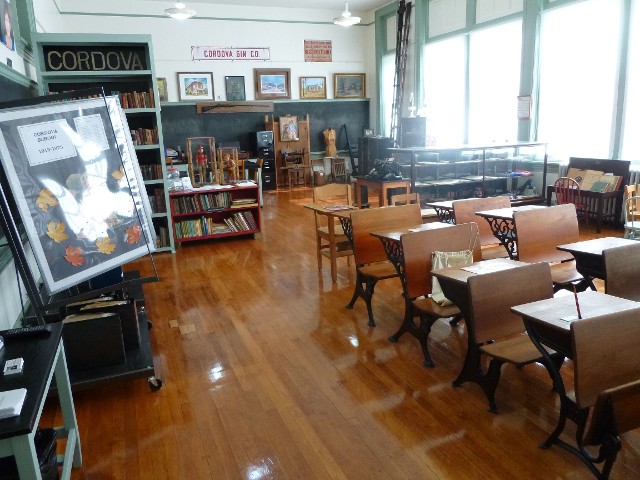HISTORY
The Cordova Museum is located in the first permanent school building of the area, built in 1913 by the architectural firm of Jones and Furbringer. The school closed in 1973 and was used for storage by Shelby County for twelve years. Then in 1985 a "For Sale" sign was posted on the front lawn, and the Cordova citizens purchased the building fearing it would be torn down. They paid off the note through various fundraising events over the next five years, forming Cordova Community Center, a non-profit 501(c)(3) organization. A museum was established in one of the old classrooms. From its founding in 1986, the museum was not publicized or promoted. In 2010, former student, Darlene Sawyer, headed a team of volunteers to clean and organize the museum with intentions of opening to the public. To offset costs, she self-published a fund-raiser book and sought community support through donations and grants to cover operating expenses. When a grant was received in 2012 the museum opened.
ARTIFACTS
Since the museum's founding in 1986, the original school memorabilia has been on display: antique pupils' desks with inkwells, teachers' desks, class pictures, a teacher's paddle, school books, sports and cheerleading uniforms, and students' poems among others. Other items were donated through the years, such as items used by Dr. Clarence A. Chaffee in the Chaffee Clinic, a collection of historic records and photographs, interviews of local senior citizens conducted by the history department at Memphis State University in 1987, early maps dating 1888, 1896, and 1902 showing property owners, a train station bench, horse and buggy lap throw, early typewriters and rotary telephones are examples. Cordova Museum is always interested in acquiring more items. However, due to limited amount of space, only items meeting with the museum's mission to collect and preserve local history can be accepted.
